When it comes to choosing the right material for your countertops, cost is often a significant factor to consider. Concrete and granite are two popular options known for their durability and aesthetics, but they come with different price tags. Let’s talk about the details to determine whether concrete countertops are cheaper than granite counterparts.
Material Cost: Concrete countertops are generally less expensive than granite countertops when it comes to material cost. Concrete is made from readily available materials such as cement, aggregates, and water, making it a more cost-effective option compared to granite, which is a natural stone that requires mining and extraction.
Labor Cost: However, the total cost of installing concrete countertops may vary depending on factors such as labor costs and installation complexity. Concrete countertops often require skilled labor for custom fabrication and installation, which can increase the overall cost compared to prefabricated granite countertops which are easier and faster to install.
Customization: One of the advantages of concrete countertops is the ability to customize them to suit your specific design preferences. This customization may include incorporating unique colors, textures, and shapes into the countertop design, which can add to the overall cost but also enhance the aesthetic appeal of your kitchen or bathroom.
Sealing and Maintenance: Concrete countertops typically require regular sealing to protect against stains and moisture absorption, which adds to the long-term maintenance costs. On the other hand, granite countertops are naturally resistant to stains and require less frequent sealing, resulting in lower maintenance costs over time.

Durability: Both concrete and granite countertops are durable options that can withstand daily use and maintain their appearance for years to come. However, granite is known for its superior hardness and heat resistance compared to concrete, which may be prone to chipping and scratching if not properly sealed and maintained.
Long-Term Investment: While concrete countertops may have a lower upfront cost compared to granite, it’s essential to consider the long-term investment value. Granite countertops are highly sought after in real estate due to their durability and timeless appeal, which can potentially increase the resale value of your home.
Environmental Impact: Concrete countertops are often considered a more environmentally friendly option compared to granite, as concrete can be made from recycled materials and has a lower carbon footprint. However, granite is a natural stone that is durable and long-lasting, reducing the need for frequent replacements and minimizing environmental impact in the long run.

Availability and Installation: Concrete countertops are typically custom-made on-site or in a workshop, which may require longer lead times and specialized installation techniques. In contrast, granite countertops are widely available in prefabricated slabs and can be installed more quickly and easily, reducing labor costs and overall installation time.
Appearance: Concrete countertops offer a modern and industrial aesthetic with a wide range of color and texture options to choose from. On the other hand, granite countertops have a more classic and timeless appeal, with natural variations in color and pattern that add character to any space.
Resale Value: Granite countertops are often considered a premium feature in real estate listings and can attract potential buyers looking for high-end finishes. While concrete countertops have gained popularity in recent years, they may not have the same resale value as granite countertops in the eyes of prospective homebuyers.
DIY vs. Professional Installation: While some homeowners may choose to undertake a DIY concrete countertop project to save on labor costs, it’s essential to consider the skill and expertise required for a successful installation. Improperly installed concrete countertops can result in structural issues and aesthetic flaws that may outweigh any cost savings.
Customization Options: Concrete countertops offer virtually limitless customization options, including embedded objects, decorative aggregates, and integral color pigments. This versatility allows homeowners to create unique and personalized designs that reflect their individual style preferences and complement their overall home decor.
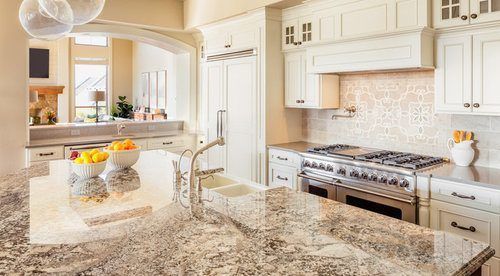
Aesthetic Appeal: Concrete countertops have a distinct modern and industrial aesthetic that can add a unique touch to any kitchen or bathroom design. With the ability to customize colors, textures, and finishes, concrete countertops offer endless possibilities for creating a one-of-a-kind focal point in your home.
Maintenance Requirements: Concrete countertops require regular sealing to protect against stains, moisture, and wear, which can add to the long-term maintenance costs. However, with proper care and maintenance, concrete countertops can maintain their appearance and durability for many years to come.
Environmental Considerations: Concrete countertops are often considered a more environmentally friendly option compared to granite, as concrete can be made from locally sourced materials and has a lower carbon footprint. Additionally, concrete countertops can be recycled at the end of their lifespan, further reducing their environmental impact.
Are concrete countertops cheaper than granite?
Concrete countertops generally have a lower upfront material cost compared to granite countertops, but factors such as labor, customization, and long-term maintenance can affect the overall cost.
What factors contribute to the cost of concrete countertops?
The cost of concrete countertops depends on factors such as customization, labor, sealing, and long-term maintenance requirements. Customization options and installation complexity can also affect the overall cost.
Are concrete countertops more durable than granite?
Granite countertops are known for their superior hardness and heat resistance compared to concrete, which may be prone to chipping and scratching if not properly sealed and maintained. Both materials are durable options for countertops with proper care.
Can I install concrete countertops myself to save on labor costs?
While some homeowners may choose to undertake a DIY concrete countertop project, it’s essential to consider the skill and expertise required for a successful installation. Improperly installed concrete countertops can result in structural issues and aesthetic flaws that may outweigh any cost savings.
What are the long-term maintenance requirements for concrete countertops?
Concrete countertops require regular sealing to protect against stains, moisture, and wear. With proper care and maintenance, including regular sealing and avoiding harsh chemicals, concrete countertops can maintain their appearance and durability for many years to come.

Granite vs Concrete Countertops – Pros, Cons, Comparisons and Costs
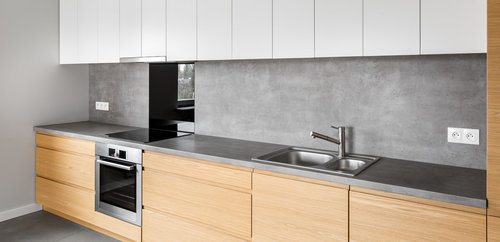
Concrete vs Granite Countertops: Whatu0027s the Difference?
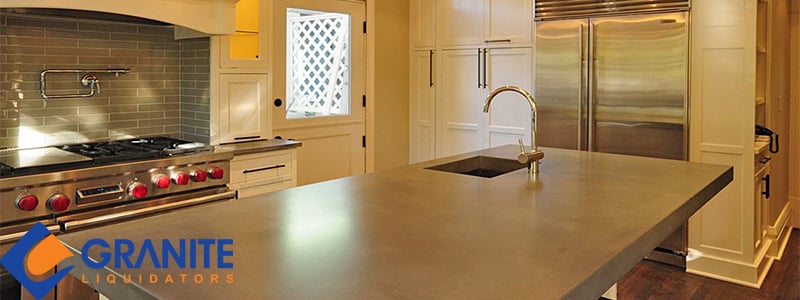
Concrete versus Granite Countertops: A Comparison – Granite ASAP
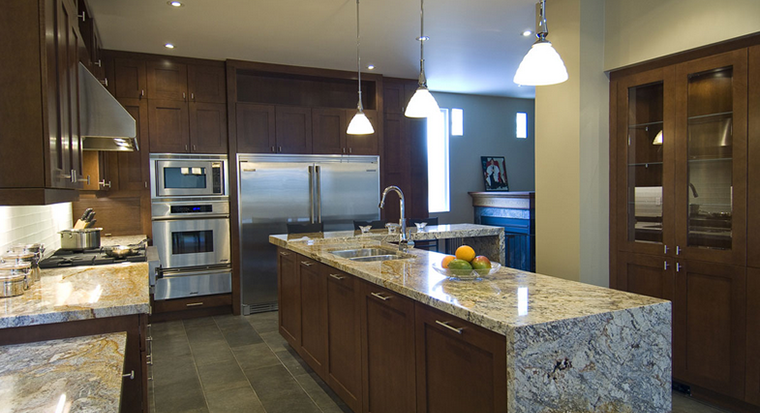
Pros and Cons of Concrete Countertops CounterTop Guides
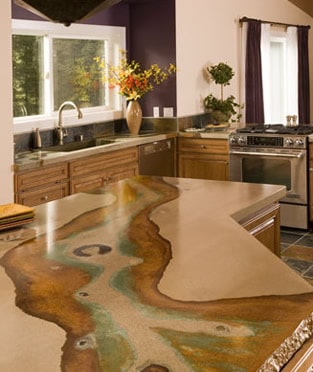
Concrete Countertops vs. Quartz, Granite u0026 More – Concrete Network
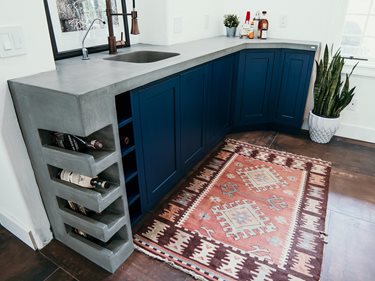
Related articles:
- Concrete Countertop Overlay
- Black Concrete Countertops
- Marble Look Concrete Countertops
- Light Grey Concrete Countertops
- Concrete Countertop Design Ideas
- Light Colored Concrete Countertops
- Epoxy On Concrete Countertop
- Concrete Countertops Designs
- Concrete Countertops That Look Like Wood
- White Concrete Countertops